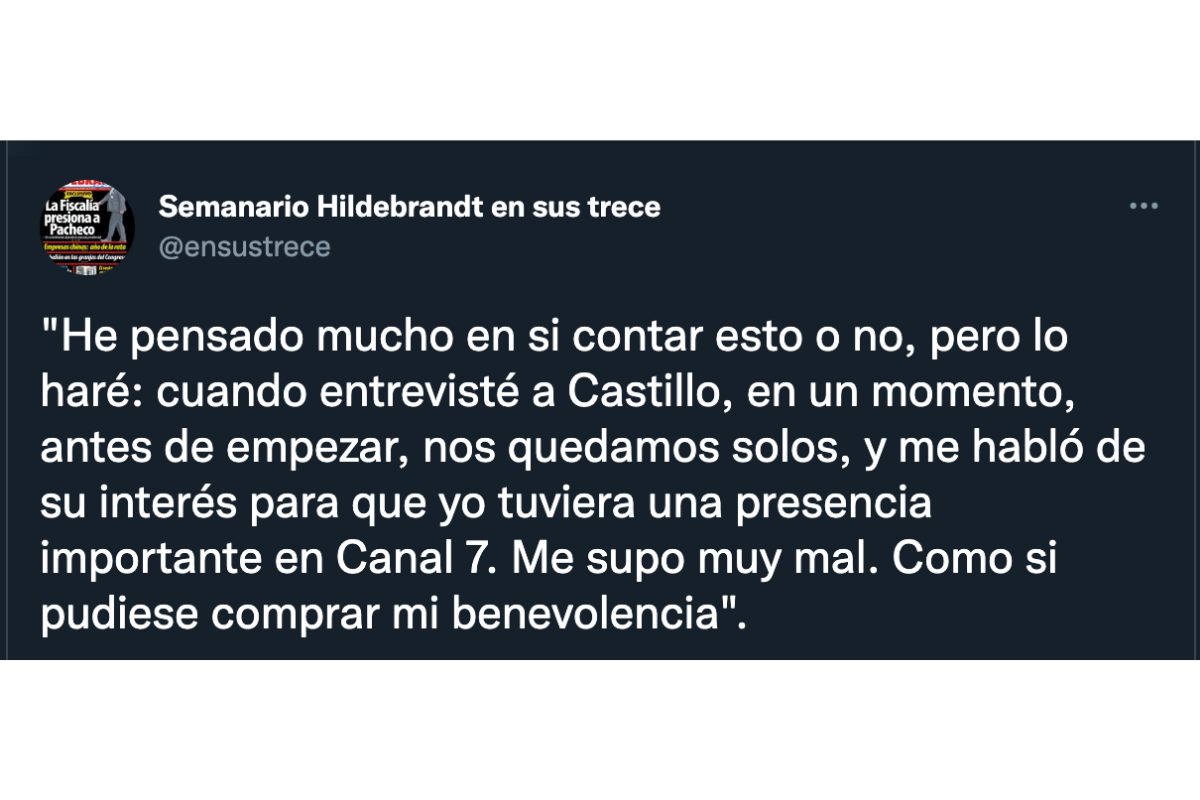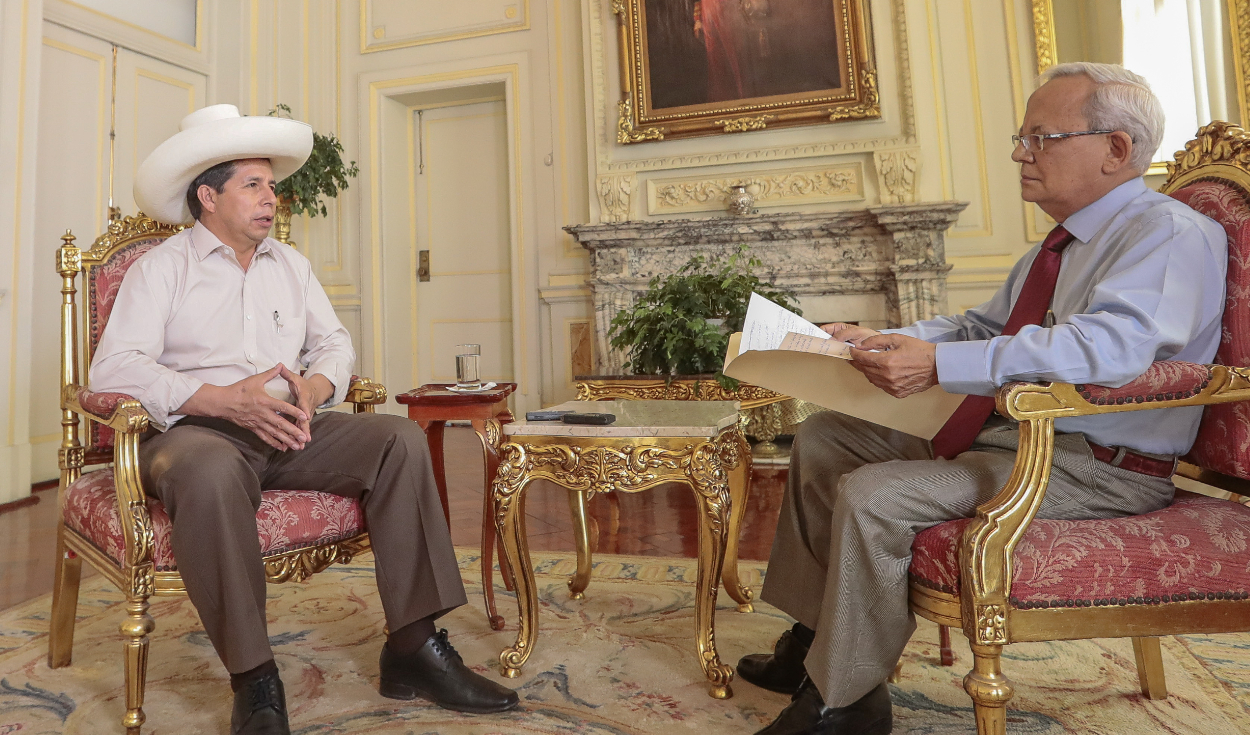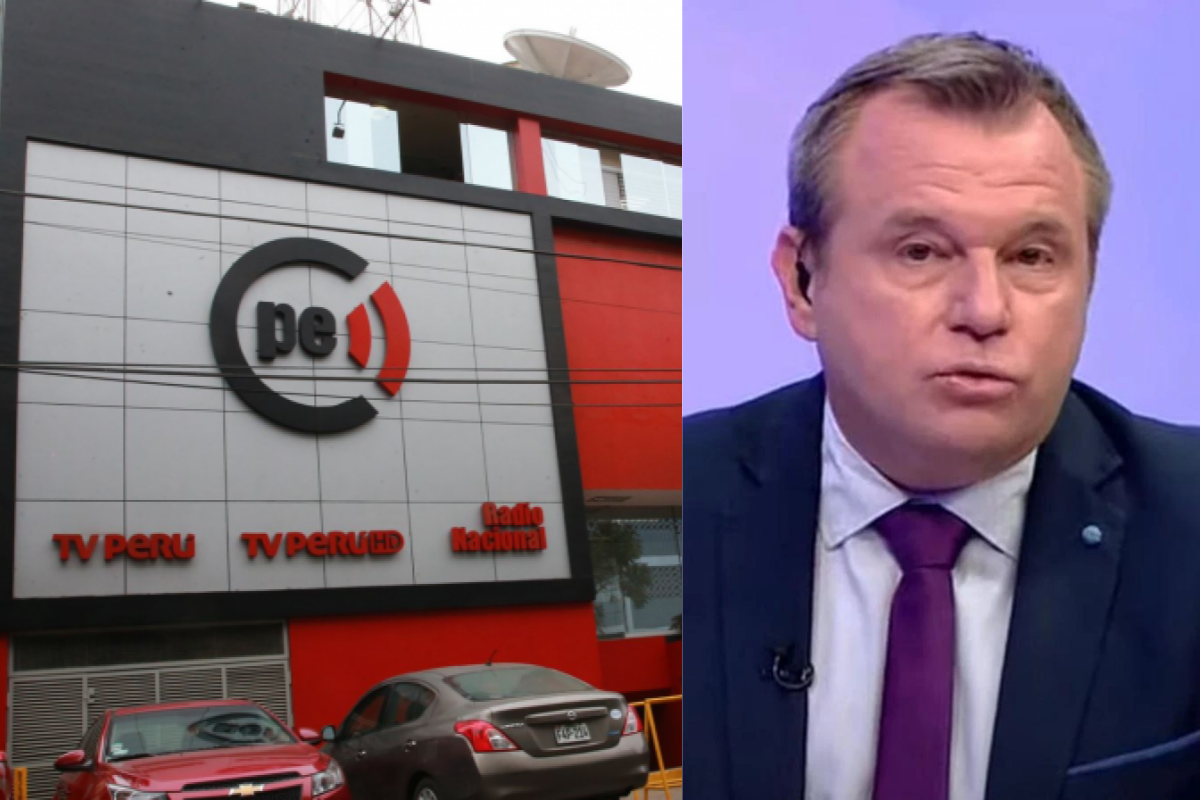
Two months after President Pedro Castillo's interview with César Hildebrant, the journalist, has released a new anecdote of that meeting. It should be recalled that this was the first time that the head of state had a formal meeting with the press after half a year of taking office. Through the social networks of “Hildebrant in his thirteen”, what was said by the controversial journalist was quoted.
“I have thought a lot about whether to tell this or not, but I will,” the beginning of the Twitter post reads. Hildebrant, during a recent virtual broadcast, recalled that before starting the interview with Pedro Castillo, they were both alone and it was at that very moment that the president took the opportunity to make a proposal that the journalist did not take advantage of.
“He told me about his interest in me having an important presence on Canal 7 (the name by which he usually refers to the State channel, TV Peru). It tasted very bad to me, as if I could buy my benevolence,” says the tweet that reviews the revelation made by César Hildebrant.

The social media post does not detail whether the president detailed the functions that he would have liked César Hildebrant to take on the said channel, it was not specified whether he wished to see him hosting a journalistic program, directing a journalistic team or being in charge of some other type of function within the institution.
This is not the first time that the controversial journalist has given details of his first meeting with the President of the Republic. In the edition of “Hildebrant in his thirteen” in which the written version of his conversation appeared, one could also read a column in which the press man shared his impressions of the man who had waited several months to contact the national press.
“After the interview, an advisor from Castillo told me something in very bad taste. He said, “Mr. Hildebrandt, your weekly has no state advertising, does it?” “I don't have it nor do I want it”, was the answer that the journalist claims to have given to the one who approached him.
In the same publication, César Hildebrant stressed that President Pedro Castillo “doesn't have a plan for Peru, it's hard to say and that's alarming, but he doesn't have a conception of what he wants to do with the country, he doesn't have a horizon of his priorities.”

This was not the first time that the journalist had commented on the shortcomings of the one who is currently leading the country's course, but it was the first time he had done so after having dealt with it. “[Pedro Castillo] Now needs a central rectification. He is a good man, but without direction, without compass, without capital (...) I make an invocation, get organized, set a plan, prioritize, surround yourself with less mentally small people. Peru needs it. Otherwise the opposition is going to devour him,” he wrote in his column.
POLITICAL INTERFERENCE ON TV PERU
Weeks ago, after his dismissal from TV Peru, journalist Enrique Chávez denounced the alleged interference of figures linked to the executive in the channel's management. During an interview with the portal Epicentro, he pointed out that the appointment of the new executive president, Joseph Dager and the role played by the Press Manager, Juio Navarro, added to the political situation in those days, meant that his departure from the channel was approaching. I definitely felt hostilization at this last stage,” he said.

At another point in the conversation, Chávez said he did not like the idea that managers assured that those who worked on the channel should identify themselves as public servants; that is, officials who work for the Peruvian State when their status as a journalist forces them to show independence from who or who are occupying key positions in government.
KEEP READING
Últimas Noticias
Debanhi Escobar: they secured the motel where she was found lifeless in a cistern
Members of the Specialized Prosecutor's Office in Nuevo León secured the Nueva Castilla Motel as part of the investigations into the case

The oldest person in the world died at the age of 119
Kane Tanaka lived in Japan. She was born six months earlier than George Orwell, the same year that the Wright brothers first flew, and Marie Curie became the first woman to win a Nobel Prize

Macabre find in CDMX: they left a body bagged and tied in a taxi
The body was left in the back seats of the car. It was covered with black bags and tied with industrial tape
The eagles of America will face Manchester City in a duel of legends. Here are the details
The top Mexican football champion will play a match with Pep Guardiola's squad in the Lone Star Cup

Why is it good to bring dogs out to know the world when they are puppies
A so-called protection against the spread of diseases threatens the integral development of dogs



